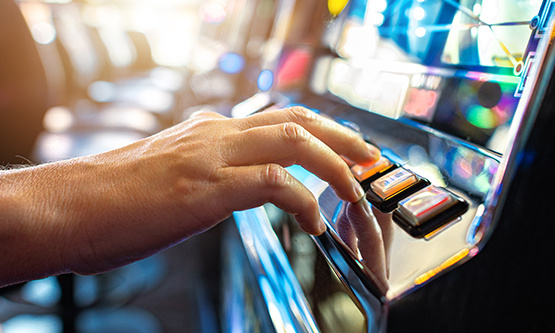
Problem Gambling
Substances aren’t the only thing that can alter brain chemistry. About 2.5 million Americans meet the criteria for severe problem gambling, which is gambling and betting at a level that is damaging to a person, their family, their life or a career.
Gambling stimulates the brain’s reward system, and with the popularity of online gambling, apps and sports betting, it’s more convenient than ever to gamble anytime and anywhere. Young people are especially at risk due to underdeveloped brains, with individuals in their early 20s being the fastest-growing group of gamblers. When gambling evolves from a fun periodic activity into a compulsion, it alters your brain and puts people at an increased risk of developing mental health and substance use disorders.
Gambling stimulates the brain’s reward system, and with the popularity of online gambling, apps and sports betting, it’s more convenient than ever to gamble anytime and anywhere. Young people are especially at risk due to underdeveloped brains, with individuals in their early 20s being the fastest-growing group of gamblers. When gambling evolves from a fun periodic activity into a compulsion, it alters your brain and puts people at an increased risk of developing mental health and substance use disorders.
Signs to Look For

Family patterns and other factors can place people at risk for problem gambling. If you’re worried for yourself or someone in your life, watch for these warning signs.
- Being preoccupied with gambling and unable to stop
- Bragging about gambling, exaggerating wins and minimizing losses
- Going back to try to win your money back (“chasing losses”)
- Acting restless and irritable when not gambling
- Borrowing money for gambling
- Lying to hide time spent gambling or unpaid debts
- Frequent unexplained absences
- Jeopardizing relationships or a job by gambling
How to Start the Conversation
If you’re worried about a loved one’s gambling, start the conversation by remaining judgment free and focusing on how much you care. Remember, the reasons behind problem gambling are complex and support is essential for someone to begin their recovery journey.
Begin with phrases like:
-
I care about you. Can we talk?
- I’m concerned about your gambling. You don’t seem like yourself lately.
- I want to help support you.
- I’m here for you. Can we get help together?
- You’re not alone.

Read more about responsible gaming and how to find help.

Find Treatment Near You
Substance use treatment providers contracted with South Dakota Behavioral Health are able to screen for problem gambling. Services can be accessed in-person or via telehealth, and financial assistance may be available. Click the link below to find services near you.



